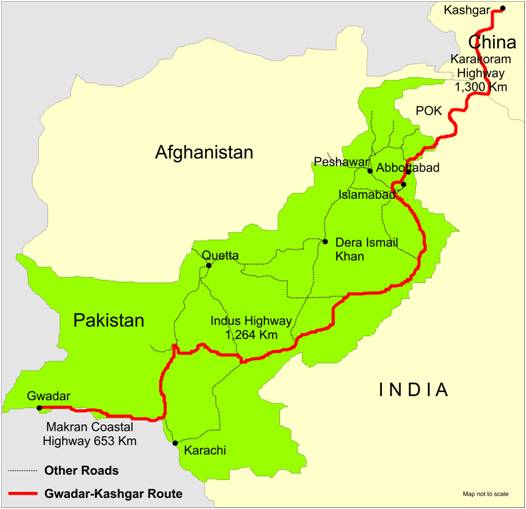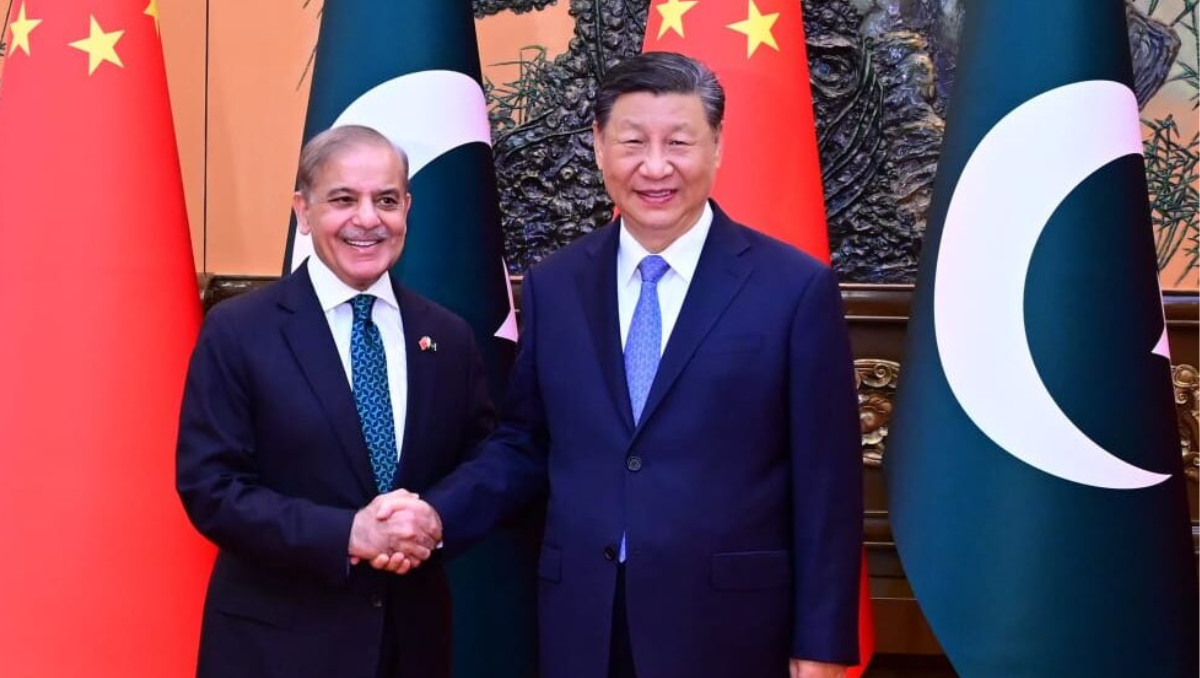China’s President Xi Jinping met with Pakistani Prime Minister Shehbaz Sharif in Beijing on Friday, only days before Pakistan delivers its annual budget and requests a new International Monetary Fund (IMF) loan.
Xi assured Sharif that the two nations had a “broad development prospect” and that China will, as always, firmly support Pakistan and safeguard its national sovereignty and territorial integrity. Xi added that China would also support Pakistan’s social and economic advancement. Pakistan’s strategic location on the Arabian Sea allows Chinese ships to avoid the Malacca Strait and provides an overland path towards the Gulf of Aden and the Suez Canal.
Pakistan is currently facing a debt crisis. As such, following its annual budget presentation on June 12, Sharif’s administration is anticipated to request at least $6 billion under a new IMF program. The loan, if approved, could help Pakistan manage its debt and continue its economic advancement. At the center of this new round of talks with the fund is the roughly $27 billion that Pakistan owes China, based on figures from the World Bank. The outcome of these talks will have significant implications for Pakistan’s debt and its economic relationship with China.
After Islamabad finished a $3 billion short-term programme that prevented a sovereign debt default last summer, the IMF started talks on the new loan in May. Nearly 13% of Pakistan’s overall debt, which was incurred over time to fund various spending projects and infrastructure upgrades, is owed to China.
Beijing has given Islamabad nearly twice as much credit as the World Bank and Asian Development Bank, Pakistan’s second and third-ranked multilateral lenders, to which the country owes $16.2 billion and $13.7 billion, respectively.

China-Pakistan Economic Corridor
Since the announcement in the summer of 2013 of a new economic corridor connecting their two countries as part of Chinese President Xi Jinping’s flagship Belt and Road Initiative, Chinese companies have also invested an additional $14 billion in Pakistan. Much of that investment came from Chinese state-owned energy businesses funding nuclear and fossil fuel power stations as well as the logistics lines being built to connect the northwest Chinese region of Xinjiang with the Arabian Sea port of Gwadar.
According to Xi, China is willing to enhance the China-Pakistan Economic Corridor (CPEC) and construct an innovative, green, and open corridor with Pakistan in order to support high-quality CPEC construction and aid in Pakistan’s economic and social progress.
According to Pakistan’s commerce ministry, Xi’s instructions to Sharif to advance the joint construction of the China-Pakistan Economic Corridor highlights the strong and mutually beneficial ties between the two nations. This cooperation is further exemplified by the signing of 31 memoranda of understanding between Chinese and Pakistani companies, spanning various sectors including technology, agriculture, trade, energy, coal, and gasification.

Image Source:
However, the Chinese premier also urged his visitor to intensify measures to guarantee the safety of Chinese-funded ventures within the nation.
His statement comes after several assaults on Chinese nationals employed by CPEC projects in the provinces of Khyber Pakhtunkhwa and Baluchistan. In the latest incident, a suicide bomber in March killed five Chinese nationals along with their Pakistani driver when they were travelling to the Dasu hydroelectric dam project in Khyber Pakhtunkhwa.
It came after the bloodiest attack on Chinese nationals in 2021, in which a bus suicide bomber murdered 13 people, nine of whom were Chinese laborers.
As differences begin to surface, Afghanistan is also playing a bigger role in both nations’ security strategies. Chinese diplomats are trying to convince the Taliban to subjugate Pakistani Taliban members to stop an increase in cross-border terrorist strikes in Islamabad and Kabul.
China is attempting to control the Pakistani Taliban and stop cross-border attacks on Chinese people and property by leveraging its increasing influence over the Taliban government in Kabul, which it does not formally acknowledge. However, Pakistan is becoming more assertive in its criticism of the Taliban government in Afghanistan and has frequently criticized them for providing shelter to terrorists.




1 Comment
Pingback: China-Pakistan Joint Settlement opposes 'Unilateral and Exclusive Actions' including Kashmir - INPAC Times